I’m having a hard time writing this post, because as of this writing there are thousands of children being separated from their parents at the U.S. border and I feel paralyzed.
I’m having a hard time focusing, truly feeling frozen and flooded at the same time.
Girls and maybe boys are being raped, parents are being lied to, you and I are being lied to, kids are being caged.
The cages aren’t even the worst part; a child would be traumatized torn from their families in this way even if they were going to a palace.
Between sitting here watching the time tick by before I teach a class (while trying to write this), mindlessly scrolling Facebook and looking at different articles that are being shared, whipping out my credit card to donate to agencies such as RAICES and calling my representatives [call (202) 224-3121 to find yours], I feel totally useless.
As a psychologist who works with people to create more optimal lives and relationships, I am not unfamiliar with trauma and the havoc that it wreaks on people’s lives and health.
Those who have experienced trauma and make it to my office (or any other mental health professional’s) are resilient.
They do so much work on themselves and in overcoming so much of their past and the lenses they’ve had to view the world through in order to survive, they show up to me struggling with intimacy more than anything.
Intimacy is hard enough if you don’t have a history of trauma.
When you do have a history of trauma, feeling safe enough with anyone takes a lot of extra work. Extra commitment, extra courage, and extra persistence. Extra faith, and an extra ability to tolerate what might be felt as life or death uncertainty.
My heart aches for what these kids who have been separated from their families will be going through in the coming days and years of their lives.
You can read more about what we can expect for these innocent children that in this post by neuroscientist James Coan.
Mother Teresa had it right when she said, “If we have no peace, it is because we have forgotten that we belong to each other.”
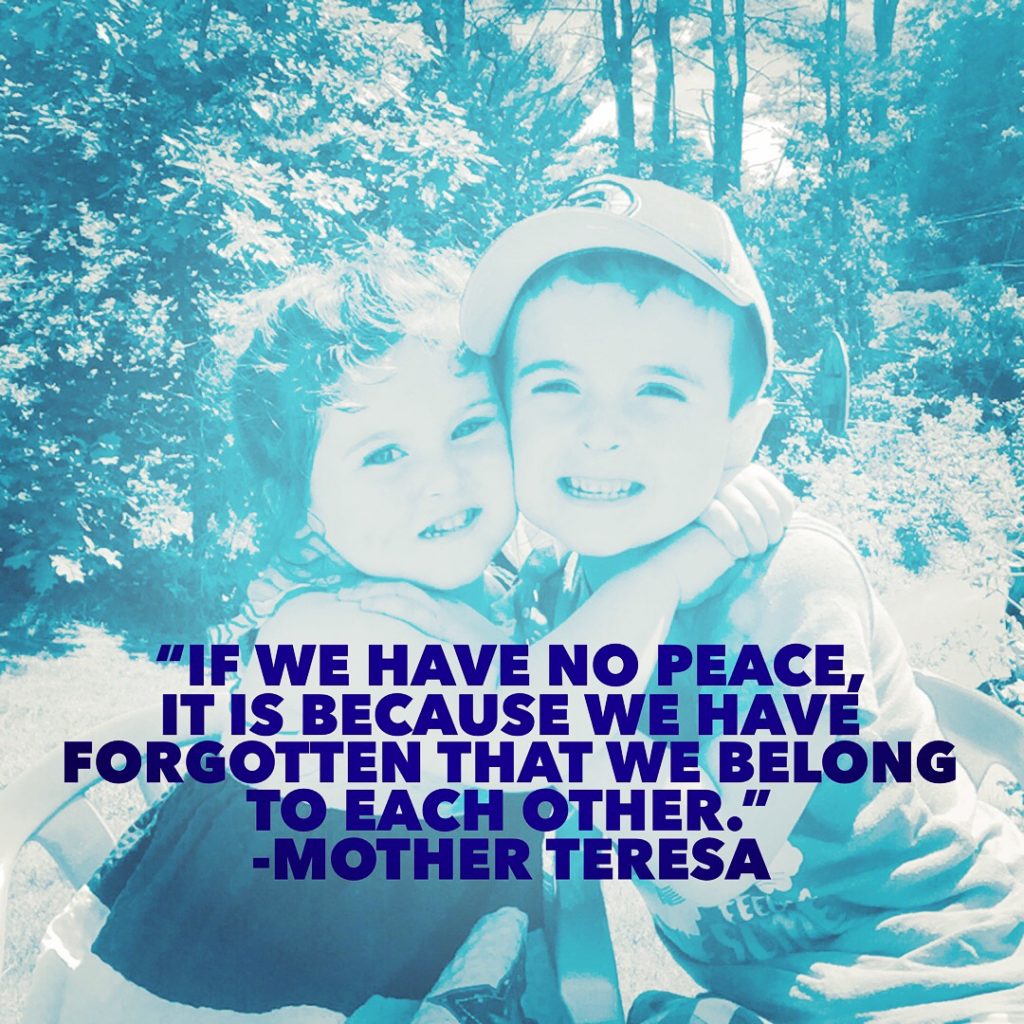
Even for those of us who haven’t been exposed to severe trauma that leads to a rigid view of the world as a dangerous place, cognitive inflexibility and chronic inflammation, when we experience stress in our connections with important others, there are a limited number of ways that we respond.
A.) Some of us become overwhelmed and flooded by our feelings — as if the volume turns up.
B.) Others freeze, feel helpless, go numb — as if the volume turns down. We’d rather avoid things all together.
C.) Some of us do a mix of both (this is particularly true for survivors of trauma, as both strategies will keep someone at a seemingly “safe” distance from you, when, ironically, the real safety lies in a deeper connection with the right people of course).
These behaviors we slip into, while seemingly automatic, often prevent us from getting our needs met.
If you are feeling slightly unappreciated, unseen or lonely in your relationship and your style of connecting (a.k.a. “attachment style”) falls into the above category A, you may lash out and be hypercritical of the person who matters very much to do, while you fear you don’t matter to them.
Ultimately you’re looking for reassurance and comfort that you matter to them, but it’s too scary to ask for that in the face of what may feel like evidence that you’re not.
Maybe you’re not even aware of the fact that distance has come between you and you are not feeling special to your partner, and perhaps you simply exude a low level yet chronic amount of crankiness.
The effect this has is exactly the opposite of what you need:
You push that person away with your hostility (or perhaps low level crankiness).
Alternatively, if your style falls into category B and you don’t feel like you are measuring up for your partner, like no matter what you do is good enough for them, maybe even YOU feel like you’re not good enough, you may just check out. Numbing out or shutting down comes easier than the overwhelming helpless feeling that no matter what you’re not good enough, or nothing you can do can make your partner happy.
This then gives the message that you don’t care.
You feel not good enough on some level, so why bother?
In this case, you set yourself up for failure, because your partner wants YOU, your presence, but when you shut down, it flies out the window.
That feeling of being frozen and helpless, shutting down, does not mean that you don’t care.
It means that you’re overwhelmed. Flooded. Paralyzed.
It’s a physiological response.
You know that, but on the outside and to your partner, you look stone cold, like nothing’s happening inside, when in fact you may be experiencing a whirlwind.
Your partner has no idea, so simply letting them know, “I feel overwhelmed right now, and when I feel overwhelmed, I just shut down.” That may not satisfy your partner, but it’s a start.
If you’re willing to stay present for yourself and your partner instead of shut down, let them know you’re working on it.
Lately, as I mentioned above, I have been feeling helpless with this situation the U.S. has created, separating families at the border.
A part of me wants to shut down.
But I know better, I know I need to go against my autopilot nature to disengage, especially in a situation like this one that truly does matter to me.
Many of us are shocked, stunned, horrified – like deer in headlights.
“How is this even happening?”
My productivity has plummeted, aside from being with my clients I am having more trouble than usual staying present, and I am deeply sad, angry, scared and overwhelmed.
These feelings are all mixed up and can overtake me, but what I need to be doing…
What any of us need to be doing in moments of crisis or stress is this:
Slow it all down.
Here’s where I get back to you if you’re having a hard time connecting in your relationship because you feel helpless or perhaps flooded.
Slow down your process, and share that with your partner.
It’s easier said than done, but if you take your immediate response, stretch out a second of time as if you were editing a sound file, and find what happens just before your immediate response.
Chances are, you’ll find nuggets of vulnerable feelings that demonstrate how much your partner matters to you.
Share those nuggets – bravely – and you may see a different response from your significant other.
And yes, it takes bravery, even if you haven’t experienced trauma.
In my own process with this crisis, by slowing myself down, feeling all of my feelings, accepting the fact that I’m not “performing” at my best because I have a heart and our country is terrorizing children, I’m able to get out of the freeze (in spurts) and take the limited action that I have.
I know I could do so much more, but something is better than nothing.
(Please know that, too, if you find yourself shutting down in your relationship. Something really is better than nothing.)
I am connected to communities largely in the mental health sphere that share my values and understand the power of connection, and additionally have friends and family who also get it.
We support each other and stand together in solidarity, even those whom I’ve never met or communicated with directly.
We share the same values; we understand we are one. I hope you are with us.
What can you do in the face of this crisis?
Even if laws are moving forward that go back on this horrific policy, damage is ongoing.
Don’t relent, continue to call your reps at (202) 224-3121, write letters, donate to organizations such as RAICES or ACLU (read more about various organizations here), and let’s stay together so that we do not become Nazis.
We must remember, we belong to each other.
 Loading...
Loading...

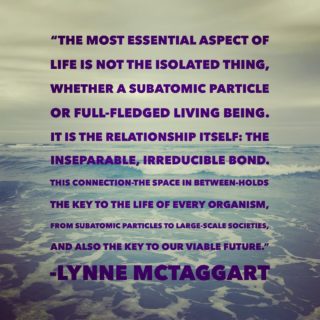



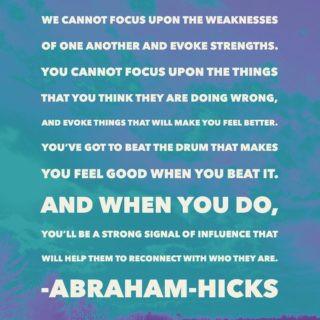






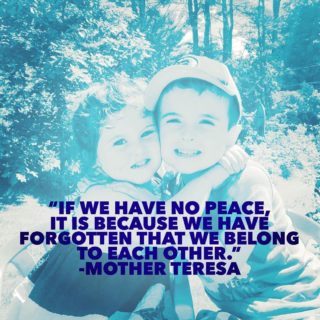
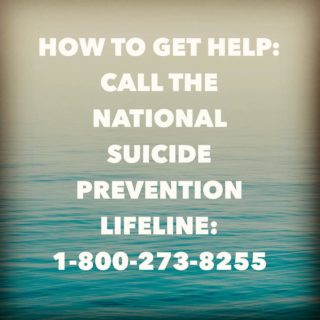
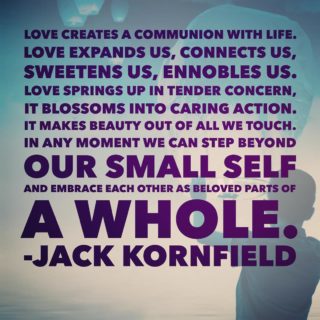
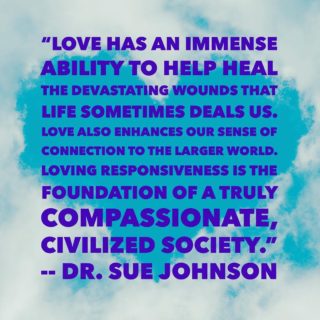

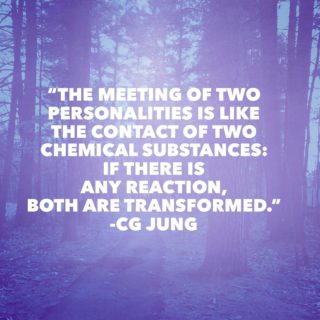





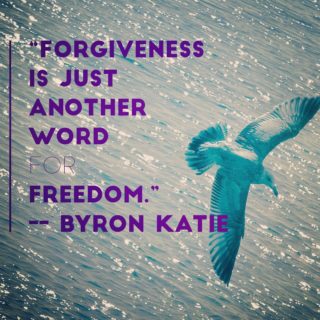






Well done Jenev. Pretending it is not happening never helps.
Thank you, Doris – I appreciate your comment, and agree 100%: pretending it is not happening never helps indeed.